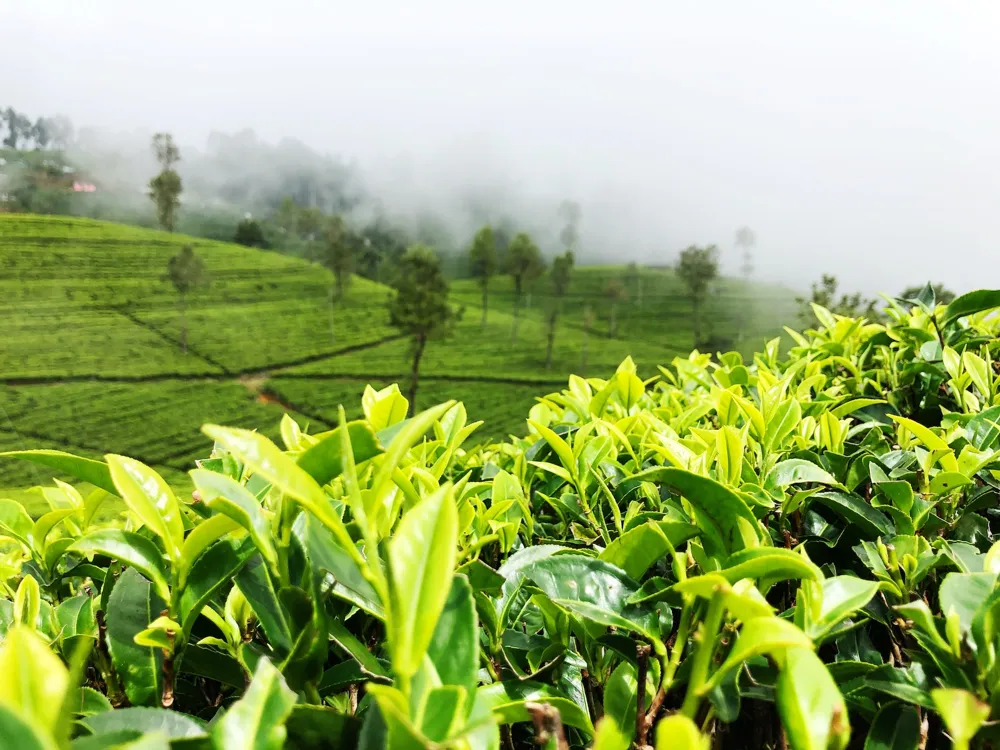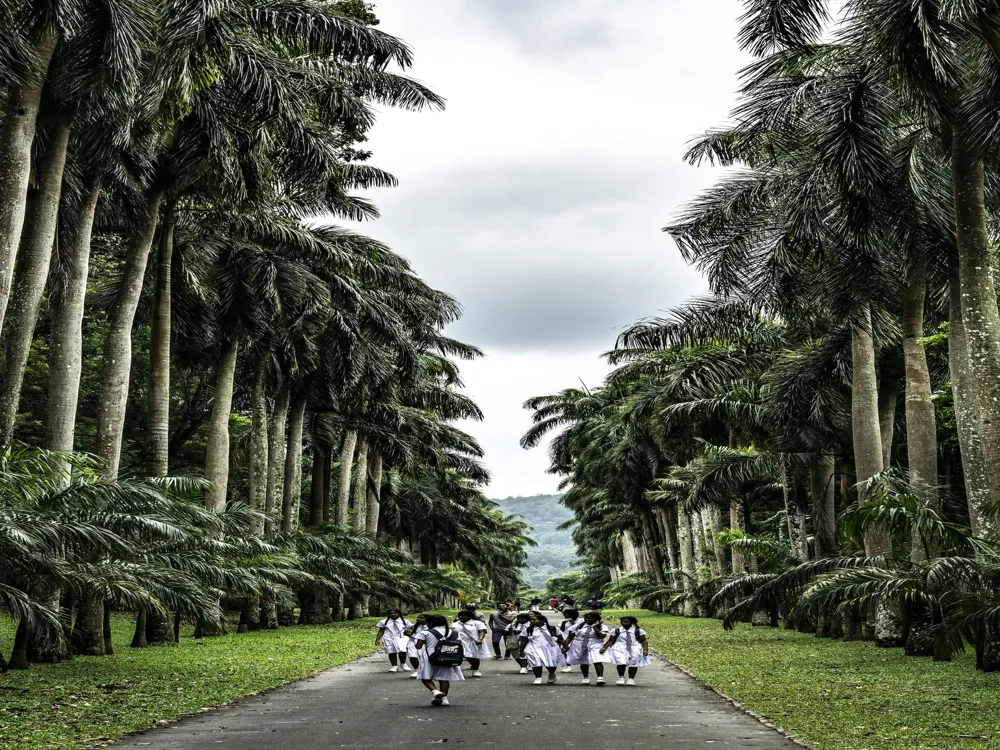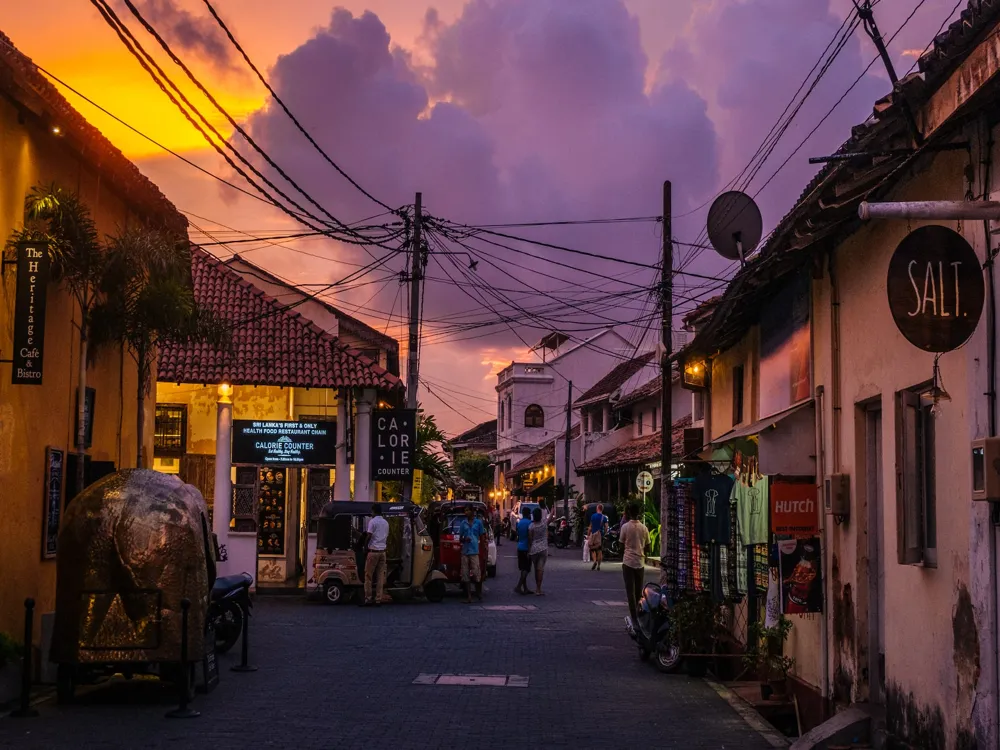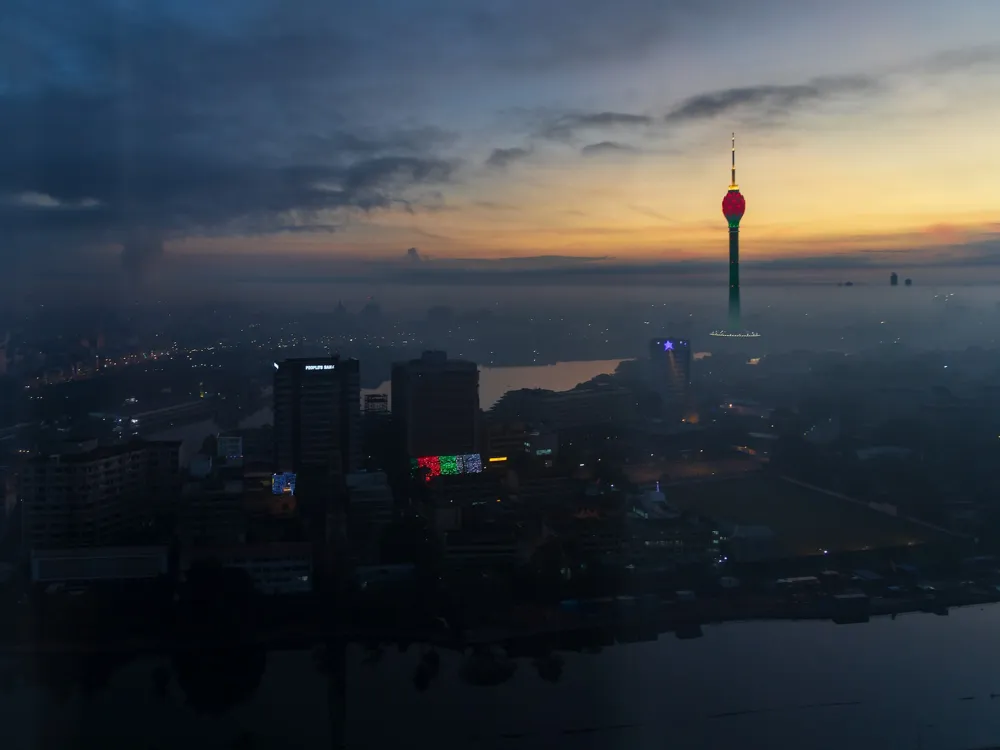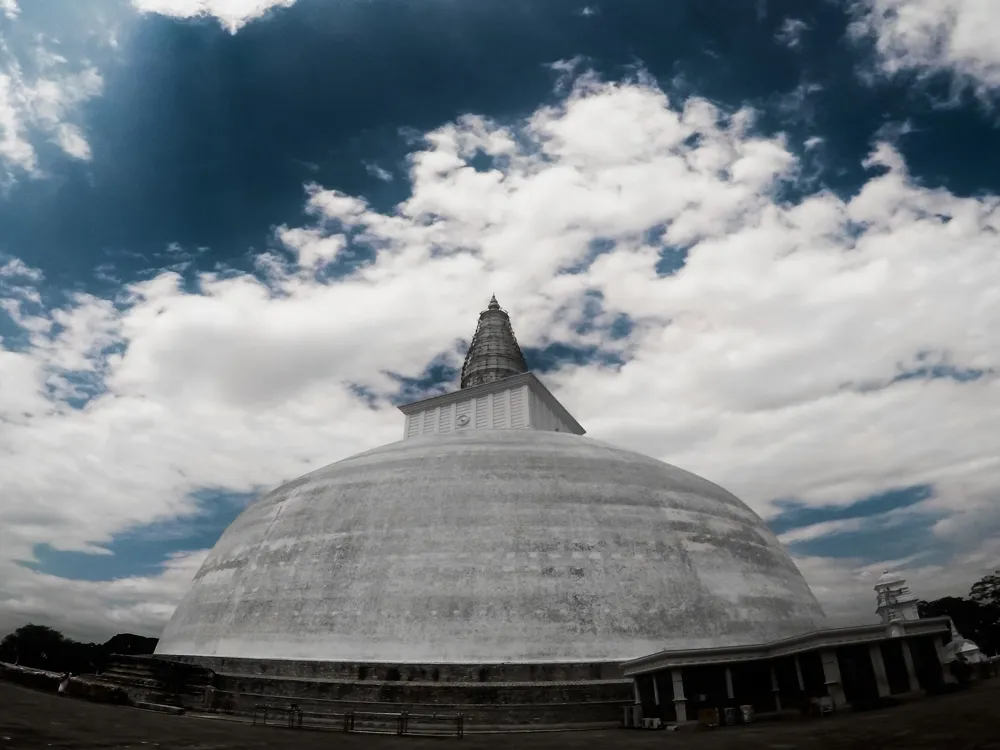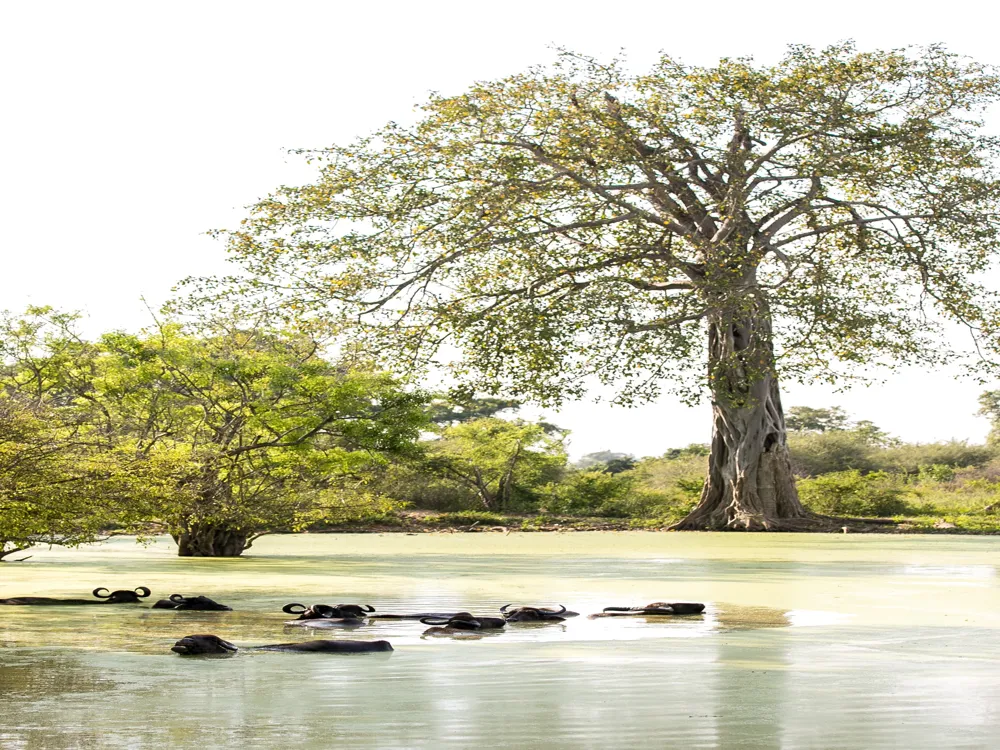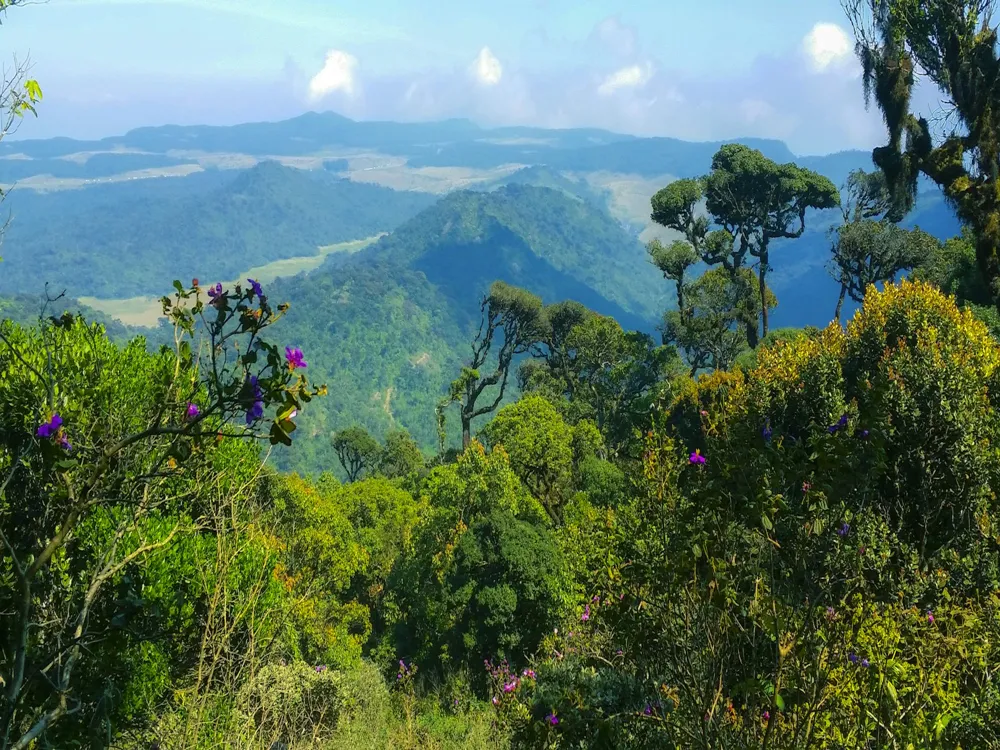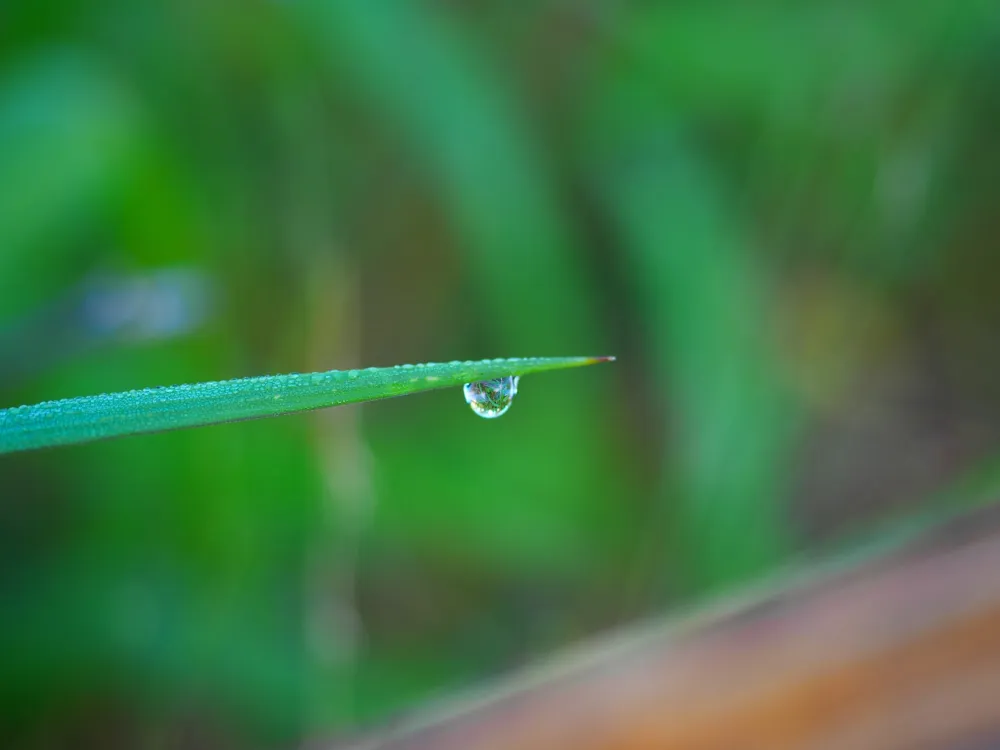Located in the misty hills of Sri Lanka's Uva province, Haputale is a town of breathtaking landscapes and rich history. This tranquil hill station, perched at an elevation of 1,431 meters above sea level, offers a unique blend of natural beauty and cultural heritage. Haputale's charm lies in its panoramic views of the southern plains, tea estates, and the dramatic Horton Plains National Park. The town's cool climate provides a refreshing escape from the tropical heat of the lowlands. Historically, Haputale has been an integral part of Sri Lanka's famous Ceylon Tea industry. The British established tea plantations in the 19th century, transforming the region's landscape and economy. Today, these sprawling plantations are not only a source of livelihood for many locals but also a major attraction for tourists. The town's history is deeply intertwined with the story of tea in Sri Lanka, and a visit here offers a glimpse into the colonial past and the evolution of tea production. Nature enthusiasts will find Haputale a haven, with numerous trails leading through lush forests and alongside cascading waterfalls. The town serves as a gateway to some of Sri Lanka's most stunning natural attractions, including the Lipton’s Seat lookout point, named after the famous tea baron Sir Thomas Lipton. From here, visitors can enjoy a panoramic view that extends for miles over verdant tea gardens and rural villages. Haputale's diverse population, comprising Sinhalese, Tamils, and Moors, adds to its cultural tapestry. This melting pot of cultures is reflected in the town's cuisine, festivals, and daily life. The warm hospitality of its people, combined with the serene environment, makes Haputale a memorable destination for all who visit. The architecture of Haputale is a testament to its colonial past and the ingenuity of its people. The town's building styles reflect a blend of British colonial, traditional Sri Lankan, and modern influences. The most prominent architectural landmarks are the tea plantation bungalows, many of which date back to the British era. These bungalows are characterized by their Victorian-style design, with gabled roofs, large verandas, and elegant gardens. Beyond the plantation bungalows, Haputale's religious buildings also tell a story of cultural diversity and architectural brilliance. The St. Andrew's Church, a notable example, stands as a symbol of the town's colonial history. This Anglican church, built during the British period, features Gothic Revival architecture with stained glass windows and wooden pews, offering a glimpse into the religious practices of the time. In contrast, the town's Buddhist temples and Hindu kovils showcase traditional Sri Lankan architectural styles. These sacred sites are adorned with intricate carvings, colorful murals, and statues, representing the deep spiritual roots of the local community. The Dowa Rock Temple, with its majestic Buddha statue carved into the rock, is a fine example of this indigenous architectural style. Modern architecture in Haputale is a fusion of traditional and contemporary designs. Newer buildings often incorporate local materials like wood and stone, blending seamlessly with the natural landscape. This approach not only preserves the town's aesthetic but also promotes sustainable building practices. Although Haputale is a year-round destination, the best time to visit is between January and March. During these months, the weather is relatively dry, offering clear skies and the best views of the surrounding landscapes. Haputale offers a range of accommodation options, from luxury plantation bungalows to budget guesthouses. Staying in a tea estate bungalow provides a unique experience, immersing visitors in the history and culture of the region's tea industry. The local cuisine in Haputale is a delightful blend of Sinhalese, Tamil, and Moorish flavors. Don't miss out on trying traditional dishes like hoppers, kottu, and the local tea, which is a staple of the region. Visitors should be mindful of local customs and traditions. Dress modestly when visiting religious sites, and always ask for permission before taking photographs of locals or their property. Haputale is well-connected by road and rail, making it easily accessible from major cities in Sri Lanka. The most scenic way to reach Haputale is by train, which offers stunning views of the hill country. The journey from Colombo takes approximately 6-7 hours. Alternatively, visitors can take a bus or hire a taxi from Colombo or other nearby cities, which is a faster but less scenic option. For those driving, the journey to Haputale can be a thrilling experience, with winding roads and spectacular views along the way. It's important to be cautious while driving, as the hill country roads can be narrow and sometimes foggy. Once in Haputale, getting around is relatively easy. The town is small enough to explore on foot, and tuk-tuks are readily available for longer distances. Exploring the town by foot offers the chance to immerse oneself in the local atmosphere and discover hidden gems off the beaten path.Overview of Haputale
Architecture of Haputale
Tips When Visiting Haputale
Best Time to Visit
Accommodation Choices
Local Cuisine
Respect Local Customs
How To Reach Haputale
Diyatalawa
Haputale
₹ 38,997 onwards
View haputale Packages
Haputale Travel Packages
View All Packages For Haputale
Top Hotel Collections for Haputale

Private Pool

Luxury Hotels

5-Star Hotels

Pet Friendly
Top Hotels Near Haputale
Other Top Ranking Places In Haputale
View All Places To Visit In haputale
View haputale Packages
Haputale Travel Packages
View All Packages For Haputale
Top Hotel Collections for Haputale

Private Pool

Luxury Hotels

5-Star Hotels

Pet Friendly












